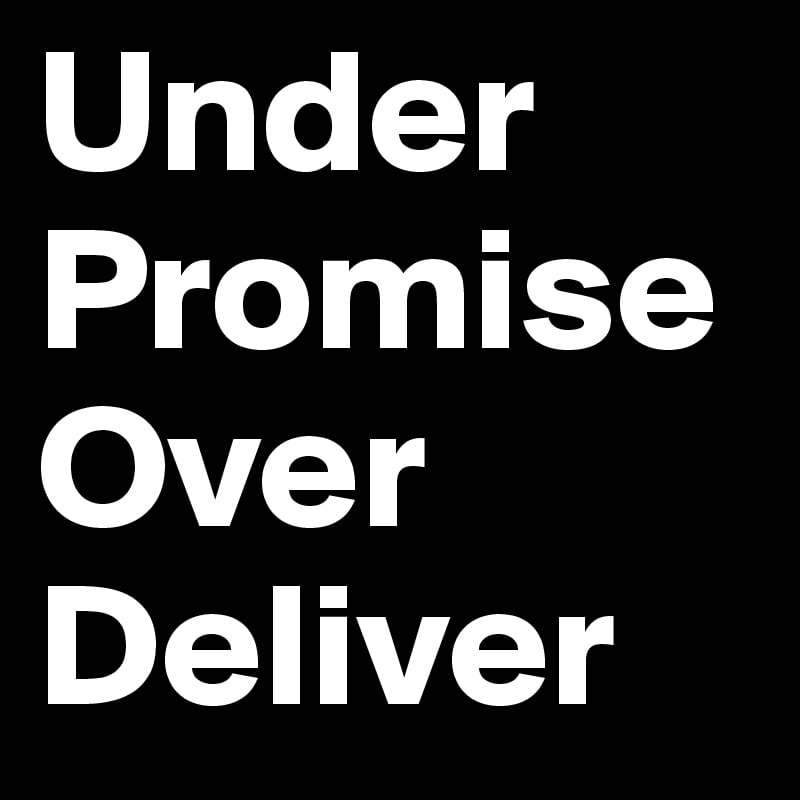
Do you want happier clients and more referrals? You need to understand UPOD v. OPUD. What the heck am I talking about? UPOD is under promise and over deliver. That is preferable and better. OPUD is over promise and under deliver. This is problematic and upsetting to clients. So, which would characterize your average litigation interaction with clients?
I think that I am guilty of Overpromising and underdelivering at times because my practice is one where new clients come in and instantly want to get a feel for whether it is worth pursuing a case or not and hence what the typical value of their injuries is or could be. From years of doing this, I can assign values to generic injuries like a broken arm etc. But, each case is different and some get stronger or weaker during litigation. It is always best to stay mum on potential recoveries if possible, but it is not easy. This is especially true in pre-litigation negotiations.
Let’s say a client comes in with a serious car crash and a broken leg with surgery. The insurance company may offer them $100,000 pre-suit. The insurance company and I both know that the case is worth $250,000 if it goes into suit. But, if I tell the client the case is worth $250,000 and then the case falls apart during litigation, it will be hard to settle for $150,000 because the client is fixated on $250,000.
This applies to many litigation contexts. As a lawyer, you have to be able to convince the client that you are the right lawyer for the job. This involves telling the client about other similar successes in this area of the law and suggest potential recoveries. Hence overpromising. Plus, you also have to convince the client that going through the headache of litigation is worthwhile. Again, you have to overpromise a bit to convince someone to endure depositions, interrogatories, inspection of them as a person or driver etc.
So, how do you underpromise and overdeliver. Often, we default to I cannot tell you how the insurer will view the case, which is very, very true. But, to me it is mealy mouthed. Other times, when I send a demand letter to the insurer, either before or during litigation, the demanded number is necessarily higher than the eventual settlement due to negotiation tactics and other factors. But, if not properly couched, clients may get attached to the demand number rather than appreciating the costs and risks of continuing with the litigation.
So, the goal is always UPOD, but it is a learned skill and one to strive for if you want to maintain happy clients and future referrals.
